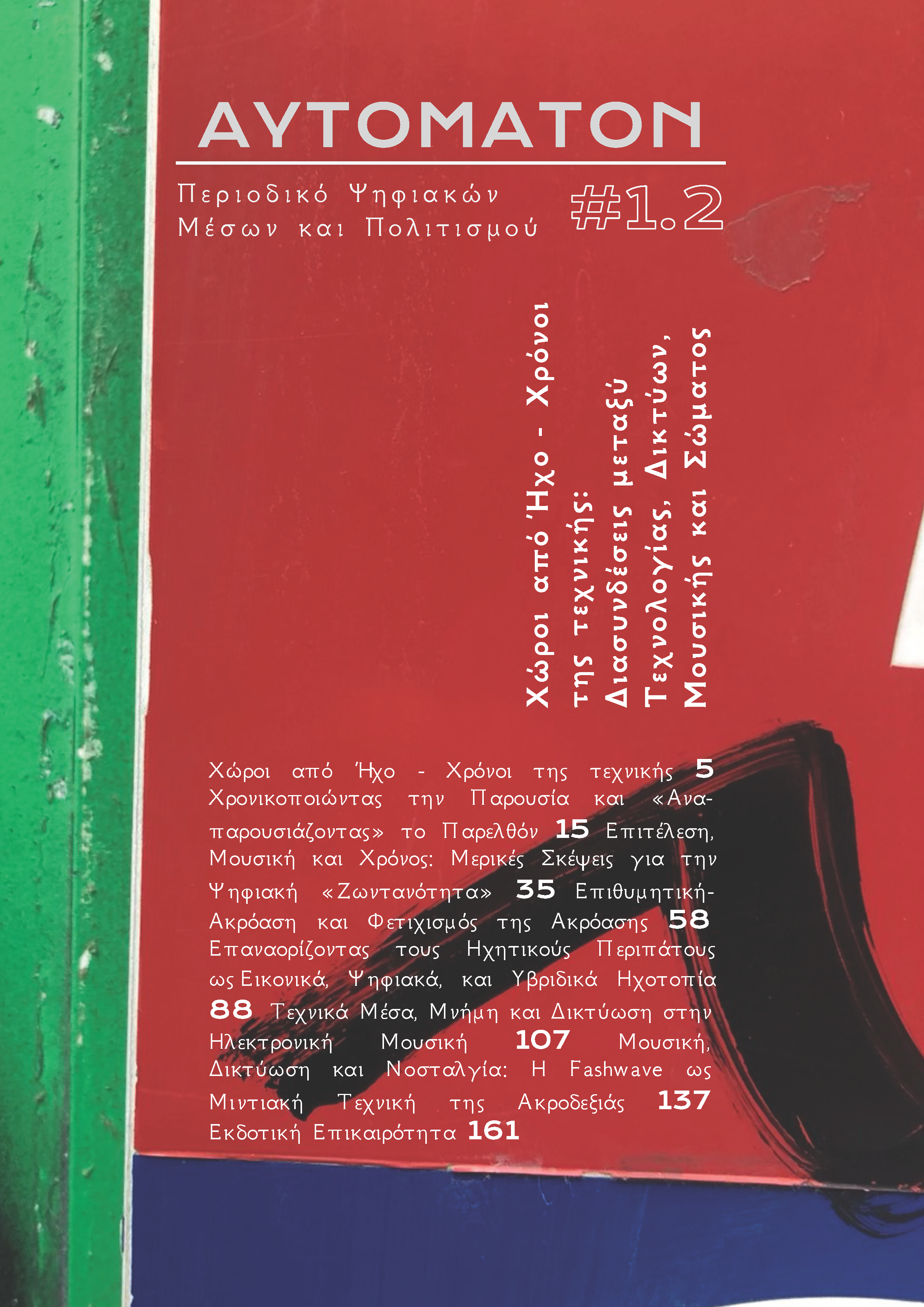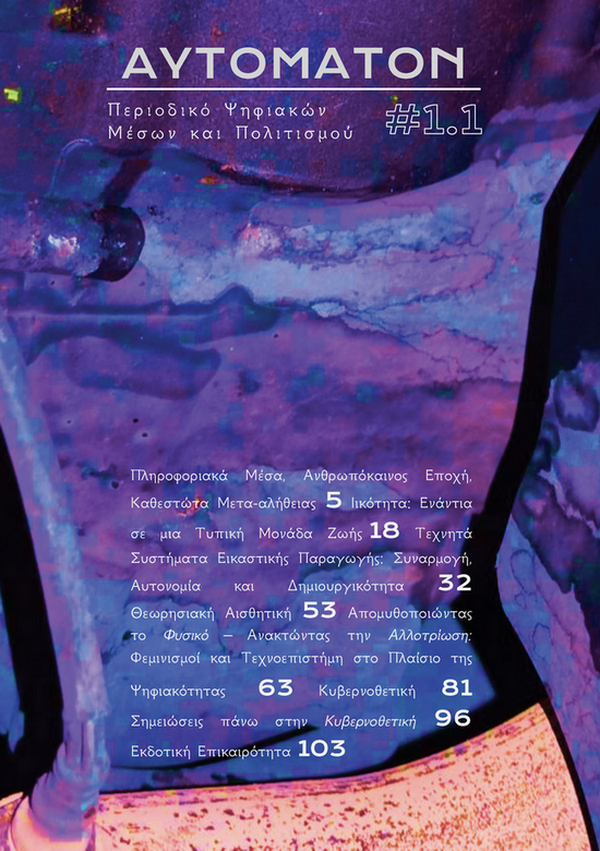Μουσική, πολιτική και νοσταλγία: Η Fashwave ως μιντιακή τακτική της ακροδεξιάς

Abstract
Το κείμενο πραγματεύεται τη σχέση μουσικής, πολιτικής και νοσταλγίας με σημείο αναφοράς τη Fashwave. Η Fashwave αποτελεί ένα μουσικό μικροείδος, αλλά και μια ευρύτερη αισθητική τάση (ένα κύμα) που αναδύθηκε από του κόλπους της λεγόμενης «εναλλακτικής δεξιάς» (alt-right), μέσα από πρακτικές οικειοποίησης προγενέστερων μουσικών μικροειδών. Μέσω της Fashwave και συγκεκριμένων ρετροφουτουριστικών και αρχαιοφουτουριστικών αναπαραστάσεων, η alt-right επιδιώκει τη συγκρότηση και κυκλοφορία του συναισθήματος της νοσταλγίας, αποσκοπώντας στη δημιουργία συναισθηματικών κοινοτήτων στο πλαίσιο της ψηφιακής δικτύωσης, καθώς επίσης και στην προπαγάνδιση των θέσεών της αναφορικά με την τέχνη, το έθνος, το φύλο και τη λευκή ανωτερότητα. Έτσι, η Fashwave συνιστά μία μιντιακή τακτική της νέας ακροδεξιάς στην προσπάθεια προσέλκυσης
νέων μελών.
Article Details
- How to Cite
-
Κυριακόπουλος Λ., Αφουξενίδης Α. ., Πέτρου Μ., & Καβουλάκος Κ. (2022). Μουσική, πολιτική και νοσταλγία: Η Fashwave ως μιντιακή τακτική της ακροδεξιάς. Αutomaton: Journal of Digital Media and Culture, 1(2), 137–160. https://doi.org/10.12681/automaton.29882
- Section
- Articles

This work is licensed under a Creative Commons Attribution 4.0 International License.
Authors wishing to publish articles in this journal agree to the following terms:
1. The Authors retain the Copyright and grant the journal the right of first publication while at the same time the copyright of the work is protected under the Creative Commons Attribution License which allows third party licensees to use the work as they wish provided they acknowledge the work's authorship and initial publication in this journal.
2. Authors may enter into separate additional contractual arrangements for the non-exclusive distribution of the published journal version of the work (for example, posting it to an institutional repository or publishing it in a book), with acknowledgment of its initial publication in this journal.
3. Authors are allowed and encouraged to post their work online before and during the submission process (e.g. on their website) as this can lead to productive exchanges as well as earlier and more citations of published work (See The Effect of Open Access).



